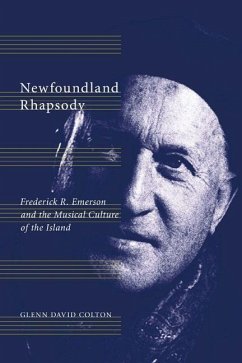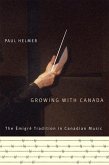Frederick Rennie Emerson (1895-1972) was a dynamic presence in the cultural and intellectual life of Newfoundland and Labrador for much of the twentieth century. A musician, lawyer, educator, and folklore enthusiast, Emerson was a central figure in the preservation and mediation of Newfoundland culture in the tumultuous decades prior to and following Confederation with Canada in 1949. Glenn Colton shows how Emerson fostered greater awareness and understanding of Newfoundland's cultural heritage in local, national, and international contexts. His collaboration with song collector Maud Karpeles in the late 1920s preserved some of the most cherished folk songs in the English language, and a decade later, his lectures at Memorial University College emphasized folk traditions and classical repertoire to inspire cultural discovery for an entire generation. As Newfoundland's representative on the first Canada Council and vice-president of the Canadian Folk Music Society, he played a crucial role in shaping Canadian cultural policy during the transformative years of the mid-twentieth century. Colton also reveals the meaningful creative works Emerson composed in response to the same cultural heritage he documented and preserved: his one-act drama Proud Kate Sullivan (1940) is a pioneering depiction of Newfoundland life, and the folk-inspired Newfoundland Rhapsody (1964) is one of few examples of symphonic music composed by a Newfoundlander of his generation. Newfoundland Rhapsody explores Newfoundland society, Canada's emerging arts scene, and the international folk music community to offer a new lens through which to view the cultural history of twentieth-century Newfoundland and Canada.
Dieser Download kann aus rechtlichen Gründen nur mit Rechnungsadresse in A, B, BG, CY, CZ, D, DK, EW, E, FIN, F, GR, HR, H, IRL, I, LT, L, LR, M, NL, PL, P, R, S, SLO, SK ausgeliefert werden.









